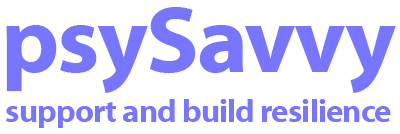Peer to peer means contact with other people based on equality, mutuality and reciprocity, preferably face to face – where power is shared in the development of ordinary wisdom – where for the moment some people may lead – but where authority/subordinate or professional/lay power relations are absent.
Self help means taking responsibility for making life more the way you want it.
Partly due to the internet, many varieties of expertise and skill are less in the ownership of professions – networks of social and psychological use-value are growing up outside them that build ordinary wisdom and shared power in more accessible and practical ways.
User-led means organisations that are defined, owned and maintained by the people who use them.
'Grass roots' is a way of referring to our common and commonsense concerns, our gifts and values, the shared power and ordinary wisdom of daily life, in contrast to ways of being that are determined by traditional power structures.
_______________________________
Recognition and valuing of our everyday rapport, chat with others and learning from experience.in psyCommons ONE I argue that threaded through our daily life is a commons – a commonsense layer of ordinary wisdom and shared power. Through it we navigate the delights and difficulties of the human condition - family, partners, ageing, work, illness, health etc. The psyCommons shows up in our face to face (and phone to phone conversations) in which we connect with each other, are in rapport with each other, chat with each other and through this sharing, learn from our own and other's experiences.
Become more aware of the hidden obstacles and opportunities that shape our myriad stories and relationships and more aware of what has been learned about them.
From our earliest moment to the present day we learn from experience. To begin with it is visceral, later language accelerates and extends what we learn about ourselves and others, and this early experience lays the foundations for our later expectations and preferences. Culturally there are an overwhelming number of messages that tell us who and how we should be – a consumer, a fashionista etc There are fewer messages that point us towards disentangling who we are from who some people, parents, partners, advertisers, bankers, politicians, archbishops may want us to be. psySavvy includes some resources that can help us take more charge of learning to keep an eye on how we do ourselves, and how we can become a person in our own right.
Recover essential learning about the human condition that the psyprofessions have captured and enclosed in the psyprofessions and make it more widely available.
psyCommons TWO outlines how the emergence of the professional psychological therapies was built on mining and extracting from countless meetings with distressed people an enormous catalogue of human condition learnings. Important aspects of this extraction and refining of human experience into professional expertise include:
One, this psyknowledge base is built out of working with damage, hurt and distress – thriving and flourishing tends to be missing.
Secondly, this psyknowledge and experience was accumulated in silos, enclosures of knowledge that form the basis for what can be seen as a psychological industry selling its privatised services. This privatisation also creates a gulf between the practitioners and their expertise and the population in general.
Lastly, the continued dominance of the medical origins of psychological knowledge, aided and abetted by the pharma industry makes way too many of our human condition difficulties into 'mental illnesses'. 'Diagnosis', 'treatment' and 'medication' short circuit responsibility and self-direction, they side-line empirical inquiry and reciprocal communal inquiry and support.
Finding or creating enhancements of the psyCommons that meet our current needs for community support for survival, recovery or flourishing.
The psyCommons is intended to function as a wake-up call. If we are experiencing some human condition difficulty, look first for local or networked self help grassroots mutual reciprocal help listed here. Be aware that human condition difficulties are universal everyone (including psychiatrists) has them. Some people come better equipped with the resilience it takes to climb out of the swamps and ravines we can fall into. Finding someone with whom we can share our experience is often sufficient to open options that may have seemed closed down.
Be aware that for all their considerable virtues, relative to the size of the population the professional psychological therapies are a tiny resource, there can never be enough therapists. Because they are scarce and because of their medical 'illness' origins, they typically deal with extreme difficulties; because of this, falling into their hands is still likely to generate stigma, a lasting shadow on our lives.
